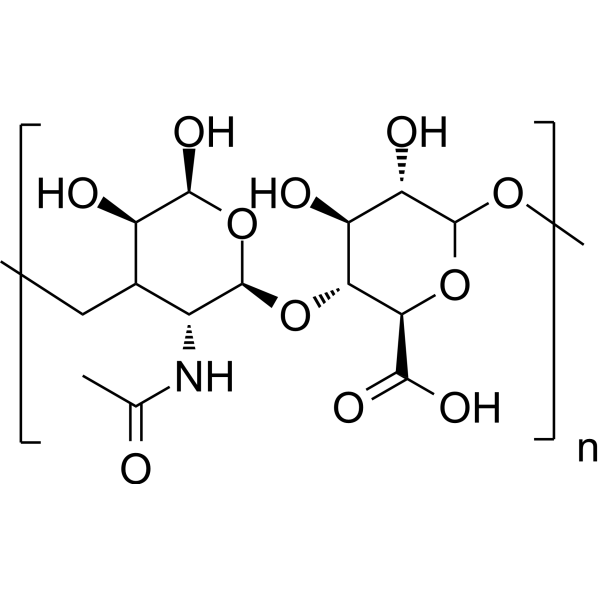
Hyaluronic Acid: A Hydration Hero or Acne Culprit? Exploring the Potential for Breakouts
AdminHyaluronic acid (HA) has become a ubiquitous ingredient in skincare, lauded for its ability to attract and retain moisture, plumping the skin and reducing the appearance of fine lines and wrinkles. However, despite its widespread popularity and at the risk of speaking bad about your fave, some individuals experience acne breakouts after incorporating HA into their routine. This raises an important question: can hyaluronic acid actually trigger acne?
While HA itself is not inherently comedogenic (pore-clogging), certain factors surrounding its formulation and individual skin characteristics can contribute to acne flare-ups. Understanding these factors is crucial for individuals prone to acne to navigate the use of this popular humectant safely and effectively.
Potential Causes of Hyaluronic Acid-Related Acne:
-
Product Formulation and Additives:
- Thickeners and Emollients: Some hyaluronic acid serums and moisturizers contain thickeners and emollients like oils or silicones that can clog pores and contribute to acne breakouts. Individuals with oily or acne-prone skin should carefully examine the ingredient list and opt for lightweight, oil-free formulations.
- Fragrances and Essential Oils: Many skincare products, including those containing HA, contain artificial fragrances and essential oils that can irritate sensitive skin and trigger acne in some individuals. Fragrance-free and essential oil-free formulations are generally safer options for acne-prone skin.
- Preservatives: Certain preservatives commonly used in skincare products can also be irritants and contribute to acne breakouts. Opting for products with minimal preservatives or natural alternatives can minimize the risk.
-
Incorrect Usage and Product Layering:
- Applying HA on Damp Skin: Hyaluronic acid works best when applied to damp skin, allowing it to attract and bind water molecules. However, if the skin is excessively damp or the product is applied too liberally, it can create a breeding ground for bacteria, leading to breakouts.
- Product Layering: Layering multiple products containing HA or other occlusive ingredients can trap moisture and sebum, leading to clogged pores and acne flare-ups. Simplifying the skincare routine and avoiding excessive product layering can minimize the risk.
-
Individual Skin Sensitivity and Barrier Function:
- Skin Barrier Issues: Individuals with compromised skin barriers are more prone to irritation and inflammation, which can manifest as acne. HA, while generally hydrating, can sometimes disrupt the delicate balance of the skin barrier, particularly if used in high concentrations or in unsuitable formulations.
- Sensitivity to HA: While rare, some individuals may be sensitive or allergic to hyaluronic acid itself, leading to irritation and acne breakouts. If experiencing persistent breakouts after using HA, it’s advisable to discontinue use and consult a dermatologist.
Managing Hyaluronic Acid-Related Breakouts:
- Choose Lightweight Formulations: Opt for lightweight, oil-free, and fragrance-free hyaluronic acid serums or moisturizers.
- Patch Test New Products: Before incorporating a new HA product into your routine, conduct a patch test to rule out potential sensitivity or irritation.
- Simplify Your Routine: Minimize the number of products you use, especially those containing occlusive ingredients.
- Hydrate Internally: Alongside topical applications, ensure adequate hydration through drinking plenty of water, which can naturally plump the skin.
- Consult a Dermatologist: If you experience persistent or severe acne breakouts after using HA, consult a dermatologist. They can help identify the underlying cause and recommend tailored solutions.
- We suggest you take a look at our acne clearing serums and ampoulés that are just as effective like our 10/10 Skin Acne Clearing Ampoulé here.
Conclusion:
While hyaluronic acid is a valuable ingredient for many individuals seeking hydration and improved skin texture, its potential to trigger acne breakouts should not be overlooked. Understanding the factors that contribute to HA-related acne is crucial for making informed choices and minimizing the risk. By selecting appropriate formulations, simplifying skincare routines, and being mindful of individual skin sensitivity, one can leverage the benefits of hyaluronic acid without compromising their skin health. We are just saying to use with caution. We highly recommend a 24hr patch-test to be sure.
Disclaimer: This article provides general information and does not constitute medical advice. If you are experiencing persistent or severe acne breakouts, consult a dermatologist for diagnosis and treatment.
